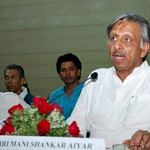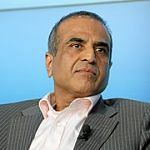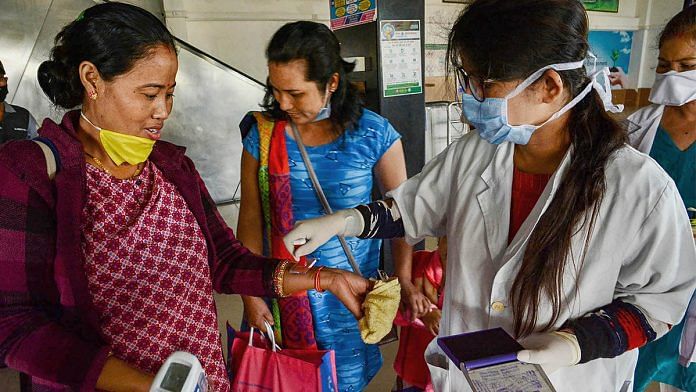
A time to stay
Mani Shankar Aiyar | Former Union minister and Congress leader
The Indian Express
Aiyar acknowledges the weaknesses in Congress and says “there is little or no interaction between the leadership and the party”. He notes “Congress Working Committee is a shadow of the extraordinary forum for democratic debate, discussion, and dissent that it was in the hoary past” and the “party’s general secretaries inspire none of the awe in which they were held in the Congress’s heydays”. However, he clarifies that this doesn’t mean it is time to move on from the Congress and it is “rediscovering its voice”. He argues that there are “green shoots of inner-party democracy emerging” and the Congress is able to show itself as an alternative to the BJP as the BJP is showing its true colours.
 New crisis, old lessons
New crisis, old lessons
K. Srinath Reddy | President, Public Health Foundation of India
The Indian Express
Reddy argues that the coronavirus pandemic reminds us that we haven’t followed past prescriptions. “The setting up of public health cadres was recommended by the High-Level Expert Group (HLEG) on Universal Health Coverage in its 2011 report to the Planning Commission”, explains Reddy. The National Health Policy also calls for public health management cadres to be established but “only Tamil Nadu and Odisha have such defined cadres now”, he writes.
 The perils of an all-out lockdown
The perils of an all-out lockdown
Jean Drèze | writer is Visiting Professor at the Department of Economics, Ranchi University
The Hindu
Drèze comments on the twin crisis that looms over India: a health crisis and an economic crisis. He argues that the health crisis has been very confined so far but the economic crisis is “hitting with full force, throwing millions out of work by the day”. He argues that there is an “urgent need for effective social security measures” since this crisis is adversely affecting the poor of the country. He categorically states, “This is not the time to let India’ frail safety net unravel”.
 Covid-19 will test, reshape the State
Covid-19 will test, reshape the State
Yamini Aiyar | President and chief executive, Centre for Policy Research
Hindustan Times
Aiyar argues that “the only certainty in the coronavirus-induced global chaos is that the idea of the nation-state as the all-powerful, enforcer of social order is back.” She says this demand for excessive State control is in part a consequence of State failure in managing public health systems and developing robust mitigation strategies. “After decades of globalisation, neo-liberalisation and privatisation, in this moment of crisis, people across the globe are looking to their national governments and willingly giving up their civil liberties in favour of absolute State control”, explains Aiyar
 In Covid-19 times, telecom emerges as a saviour
In Covid-19 times, telecom emerges as a saviour
Sanjay Kapoor | Former CEO, Bharti Airtel for India and South Asia, and former chairman, Micromax
Hindustan Times
COVID-19 has forced citizens to adapt to a new lifestyle. There is advocacy around social changes such as staying home, maintaining high standards of personal hygiene and practising social distancing to remain safe. Kapoor argues that telecom companies have played a critical role in the crises. “There is an ecosystem of telecom infrastructure, social media platforms, digital content and digital services that allow virtuality to fill the physicality void, and remain productive, with significantly mitigated continuity risks “, argues Kapoor
 Water in the age of coronavirus
Water in the age of coronavirus
Sunita Narain | She is at the Centre for Science and Environment
Business Standard
In view of World Water Day Sunday, Narain discusses the accessibility of water especially in light of the coronavirus pandemic that mandates frequent washing of hands. “Access to clean water is not just a fundamental right, it is absolutely necessary for preventing and controlling diseases,” she argues. She suggests “investing in local water-harvesting systems”, reducing water usage and water wastage and re-designing sewage management.
Small-world networks
Devangshu Datta | Journalist and novelist
Business Standard
Dutta argues that the “lack of random testing” in India means “we simply don’t know about the extent of community spread” of COVID-19. People live in “small world networks” which are a “cluster of friends, family and professional colleagues, etc., who know each other too”, he explains. If there is an infection in one small world, you could very likely get infected too or get it from another small world depending on the linkages between the two, he adds.
 Coronavirus can throw economy into a tailspin
Coronavirus can throw economy into a tailspin
Sangita Reddy | Joint Managing Director, Apollo Hospitals Group, and President, FICCI
The Hindu Business Line
Reddy looks at a FICCI survey that found 53 per cent of Indian businesses have been impacted by the coronavirus pandemic “at early stages”. Therefore, organisations should insist on work-from-home and anticipate depleted workforces while the central government’s task force led by Finance Minister Sitharaman should focus on “relaxation in NPA norms, deferral of tax payments and income support to the unorganised sector workers”, she suggests.
 A pathogen causing havoc has revealed the real face of China
A pathogen causing havoc has revealed the real face of China
Sandipan Deb | Former editor of ‘Financial Express’, and founder-editor of ‘Open’ and ‘Swarajya’ magazines
Mint
Deb hopes that the world will “wake up” to the threat of China, given that the country “managed to fool the US and the West into helping (in fact, financing) its rise to superpower status”. He argues that all the evidence was there to see — “China openly stole technology till it no longer needed to, flouted international trade norms, tried to control the South China Sea, lied brazenly and constantly about its true intentions, and trapped nation after nation in its Belt and Road Initiative”. He notes that now, COVID-19 should serve as a “mega-decibel wake up call”.
 We may finally have a chance to transform the country
We may finally have a chance to transform the country
Manu Joseph | Journalist, and a novelist, most recently of ‘Miss Laila, Armed And Dangerous’
Mint
Joseph argues that COVID-19 pandemic is a “transformational event.” and PM Modi should use the “hysteria” around it to “first get our public spaces in good shape,…tame some harmful Indian civic freedoms” and “get draconian about hygiene and public order”. He points out that “in large parts of India, spitting, dumping garbage, urinating and defecating” out in the open are continuing to take place.
 Contagion lies and crises
Contagion lies and crises
Nirvikar Singh | Professor of Economics, University of California, Santa Cruz
Financial Express
Singh points out the US’ strategy to tackle COVID-19 is “one of the worst responses possible, and caused unnecessary human suffering and economic damage”. He expands on four lessons that the US experience can pass on to India. For instance, politicians who deny reality are not prioritising the welfare of citizens. Second, leaders who do not trust expertise and “surround themselves with flatterers” will be ill-equipped to deal with the crisis. Third, a de-centralised system is helpful as states compensate for Centre’s failures in containing the spread of the virus and fourth, it is imperative to deal with the ongoing economic crisis in India as two crises at once is a “monumental challenge” for the country.
 Clap your hands for telcos
Clap your hands for telcos
Sunil Bharti Mittal | Chairman, Bharti Airtel
The Economic Times
Mittal observes that with worldwide lockdowns and restrictions on movement, “the value of telecommunication networks — both mobile and fixed — has never been more pronounced”. While the telecom sector has been “in the red” due to “internecine battles in the market and “age-old disputes”, it’s time the country takes note of how the telecom industry is “playing for the welfare of its people”, he argues.
Today’s Editorials
The Hindu: Between 18-20 March, no new coronavirus cases emerged in China and this turn around comes at a time when the virus is rapidly spreading in Europe and the US, writes Hindu. Despite the delay in informing its own people and trying to cover up the situation, China’s efforts of sequencing the whole genome of the virus and making the data public gave the world a head start to tackle the situation, the daily writes.
The Indian Express: The disruption in the economy due to the coronavirus outbreak will continue well into the upcoming financial year, predicts Express. The policy response requires coordinated action at both central and state level. The government should aim to limit the economic fallout by providing targeted income support especially for the vulnerable segment of the society, it says.



